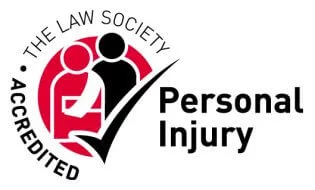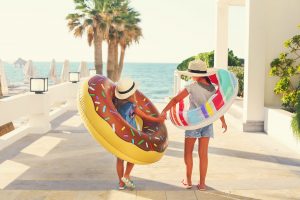Cruise Ship Injury Claims
How to Claim for Accidents at Sea
Ferries, cruise-liners and boats must comply with health and safety legislation. Most accidents can be avoided with adequate safety, training and planning
A cruise or sea trip should be a time of relaxation, but when accidents happen, the consequences can be serious. Whether you’ve suffered an injury on a cruise ship, ferry, private yacht, or during an excursion, you may be entitled to compensation. These claims often fall under international maritime law, which has unique rules and deadlines.
At Osbornes Law, our specialist holiday accident solicitors are experienced in handling cruise and sea accident claims, offering clear advice and strong representation. We work on a no-win-no-fee basis, meaning you won’t pay legal fees if your claim is unsuccessful. This page explains who can claim, what kinds of injuries qualify, and how we can help you secure the compensation you deserve.
Who can claim?
The ins-and-outs of claiming compensation for an injury arising from an accident on board a vessel can be tricky, depending on the cause of the accident and where in the world it happened and whether the boat was moored or not.
It could be that you are covered under the Athens Convention and the 2002 Protocol or that you fall under the jurisdiction of a particular country. For this reason, it is strongly advised that you speak to an informed, specialist lawyer as soon as possible if you think you may have a valid claim.
You may be eligible to claim if you were injured due to negligence while:
- Slipping or tripping on wet decks, loose carpets, or poorly lit staircases
- Being hurt by faulty gym or pool equipment
- Falling ill from contaminated food or inadequate hygiene standards
- Receiving negligent medical care on board
- Being injured during an organised excursion (e.g., boat tours, water sports)
Claims can be made by passengers and crew members as long as the incident was caused by someone else’s failure to take reasonable care.
Common Types of Cruise & Sea Injuries
Slips, Trips & Falls
Wet surfaces, unstable stairways, and poorly maintained walkways are common causes of accidents at sea. These injuries can lead to fractures, head trauma or long-term mobility issues.
Sports or Recreational Injuries
Many ships offer onboard sports activities like climbing walls, zip lines or diving sessions. Injuries may occur if staff are improperly trained or equipment is unsafe.
Food Hygiene & Medical Negligence
Poor food hygiene or unsafe water supplies can result in food poisoning and other infections. You may also claim for inadequate onboard medical treatment or delayed emergency care.
Equipment Faults
Loose handrails, broken doors, or malfunctioning machinery can cause serious injuries. Operators have a duty to maintain safety standards on all vessels.
How long do I have to make a claim?
Strict deadlines apply to sea accident claims, especially under international conventions like the Athens Convention so it is important to:
- Report the incident immediately to the ship’s staff and request a written accident report.
- Notify the cruise operator in writing within 6 months of the incident.
- Submit your personal injury claim within 2 years from the date of injury.
Failing to meet these deadlines can prevent you from claiming compensation. The Athens Convention has a strict time limit of two years from the date of disembarking the vessel. If the claim is not issued in this time period, you will lose the right to compensation. This is absolute; no exceptions. Therefore, it is important to act quickly if you are thinking about making a claim.
How much can I claim?
Compensation amounts vary depending on the severity of your injury. Here are some typical ranges:
- Minor injuries (sprains, cuts, mild illness): £1,500 – £4,000
- Moderate injuries (fractures, lasting pain): £4,000 – £20,000
- Serious injuries (head trauma, spinal injury, long-term effects): £25,000 – £100,000+
For medical negligence or permanent disability, awards can be significantly higher. Each claim is assessed individually based on its impact on your life.
Steps to improve your chances of a successful claim
To improve your chances of success you should:
- Report and document the accident.
- Get a copy of the ship’s incident report and take photographs of the scene.
- Collect witness details, especially if crew or other passengers saw what happened.
- Preserve evidence, including medical records, prescriptions, or CCTV footage. Seek legal advice as soon as possible.
- Record details of any medical treatment you received, either on board, at your travel destination, or when you return home
- Keep receipts to prove your expenses
The next step is to contact a personal injury solicitor who is experienced in international travel accident claims as soon as you return home. Both the Montreal and Athens Conventions give UK-based passengers the right to claim compensation through the English courts, no matter where the accident happened. You will not need to hire a foreign lawyer or issue proceedings overseas.
Proof of liability
For a higher value claim to be successful, liability must be proven. This means that intentional fault must be attributed to the vessel company. This liability is not always clear or proven in court, despite obvious deaths or injuries.
What is the Athens Convention?
For international shipping accidents, the relevant convention is known as the Athens Convention. It applies when you are travelling on a ship, ferry or other vessels.
The 1974 Athens Convention and its successor, the 2002 Protocol are agreed European Union regulations to do with the liability of water-going vessels and their insurers, and the values of any compensation awards.
Under the 2002 Protocol, vessels licensed to carry more than 12 passengers must hold liability insurance. In addition, the liability limits were also raised for death and personal injury, to between SDR 250,000 to SR 400,000 depending on circumstances. Finally, it was determined that an advance payment must be made to a victim or their family, to cover any financial shortcomings in the immediate aftermath of a death or injury.
Under the Athens Conventions, the shipping company is responsible for any injuries suffered while on the vessel or during embarkation/disembarkation. It works in much the same way as the Montreal Convention, except there is no ‘strict liability.’
This means you will have to show that the accident was caused by the fault or negligence of the shipping company or its employees to make a successful claim.
What if my travel was part of a package holiday?
If you booked your sea travel as part of a package holiday, then a claim may be made against the tour operator under English law. Your solicitor can help you decide who to claim against for the best chance of securing compensation.
Why Choose Osbornes Law?
At Osbornes Law, we understand the complexity of cruise ship injury claims. Our team has a proven track record of securing compensation for passengers injured on cruises and at sea.
- Specialists in personal injury law
- Successful history of high-value settlements
- Personal, client-first service
- No-win-no-fee representation
If you’ve been injured on a cruise ship or at sea. Osbornes Law offers expert legal advice to help you claim the compensation you deserve.
To speak with one of our solicitors, contact us by:
- Filling in our online enquiry form; or
- Calling us on 020 7485 8811
Speak to us about an accident at sea
Call us 020 7485 8811
Email us Send us an email and we’ll get back to you
Mark is the perfect cocktail of wit, experience and intelligence.
My colleague referred your firm as she was very impressed by the quality of services delivered by your firm
"Andrew Middlehurst has a growing specialism in cycling claims and in the laws around e-scooters"
"Lisa Pepper somehow manages to get parties to settle on matters where there isn’t much hope to start out with."
A very heartfelt ‘thank you’ to you and the whole team there. I am very happy with everything that has been achieved by you. I will certainly contact you in the future and recommend yourself and Osbornes to others whenever the need arises.
Related InsightsVIEW ALL
- 15.1.2020
Package Holidays – be prepared!
Now that Christmas is over and we are moving swiftly through January, thoughts turn to the next big holiday, and...
Read more - 9.8.2019
Flying Abroad – Accidents on Board a Plane
Each year there are around 50 million flight journeys globally, comprising commercial, private, military and business flights. As with any other...
Read more - 25.3.2019
All roads lead to Rome…but what if...
It’s official – the long hot summer we were promised has turned out to be a damp squib. With some...
Read more
The Personal Injury Solicitors Team View the whole team
Rob Aylott
Partner
Personal Injury SolicitorsSam Collard
Partner
Personal Injury SolicitorsSophie Davies
Partner
Personal Injury SolicitorsStuart Kightley
Partner
Personal Injury SolicitorsPatricia McCaffrey
Partner
Personal Injury SolicitorsSiobhan McIvor
Partner
Personal Injury SolicitorsView the
whole team







